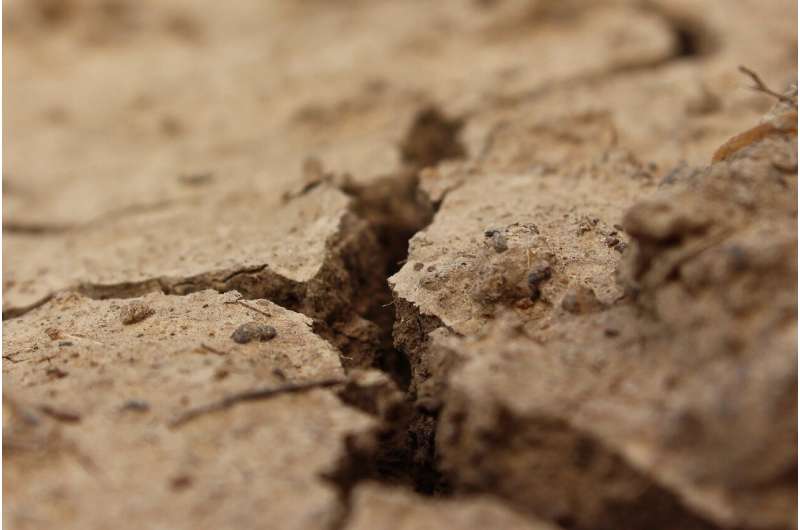Bioengineered soil microbes may help prevent desertification

By tweaking the genes of microbes in the soil, it may be possible to make arid ecosystems more resilient to climate change and overgrazing, according to a new study. The research is in early stages, and currently consists of theoretical work using computer models. But the models suggest that even relatively small changes to key organisms could have profound effects.
Water-scarce regions, known as "drylands," cover roughly 40% of Earth's land area and are home to about 40% of the human population, according to Ricard Solé, a biophysicist at Pompeu Fabra University in Spain. Many drylands host productive ecosystems that are adapted to low levels of moisture. But when such ecosystems are subject to overgrazing or a warming climate, they can collapse and turn into much less hospitable deserts. These collapses often happen suddenly, after ecosystems pass a "tipping point."
Solé and his colleagues are working to see whether genetic changes to microorganisms could shift these tipping points. For example, it may be possible to take photosynthetic bacteria that already live in dryland soils and splice in genes that allow them to store more water or capture more phosphorus, said Solé. These engineered bacteria could then enrich the soil, allowing plants to grow and create shade, which would then support the growth of more bacteria.
Solé describes such mutually beneficial relationships between species as "cooperative loops." In one set of models, he and his colleagues simulated the creation of new cooperative loops and observed how they affected the rest of the virtual ecosystem. In another set of models, they simulated microbes with increased ability to disperse and spread to new areas.
Both types of modifications allowed simulated ecosystems to function under drier conditions. In theory, engineered microbes might allow dryland ecosystems to survive for several more decades, giving humanity more time to address underlying problems such as climate change, said Solé. The findings were published today in the journal Royal Society Open Science. The researchers plan to begin laboratory experiments with real organisms next year.
People often fear that engineered organisms could lead to "Jurassic Park"-type scenarios, noted Solé. Indeed, extensive testing would be needed to ensure the engineered microbes wouldn't cause any unintended harm. But in Solé's view, the urgent state of the environmental crisis may justify extreme measures.
"We are doing everything wrong already. … We are destroying everything," said Solé. "We need to gain some time."
More information: Blai Vidiella et al. Synthetic soil crusts against green-desert transitions: a spatial model, Royal Society Open Science (2020). DOI: 10.1098/rsos.200161
Journal information: Royal Society Open Science
Provided by Inside Science, American Institute of Physics
This story is republished courtesy of Inside Science. Read the original story here. Used with permission. Inside Science is an editorially independent news service of the American Institute of Physics.



















